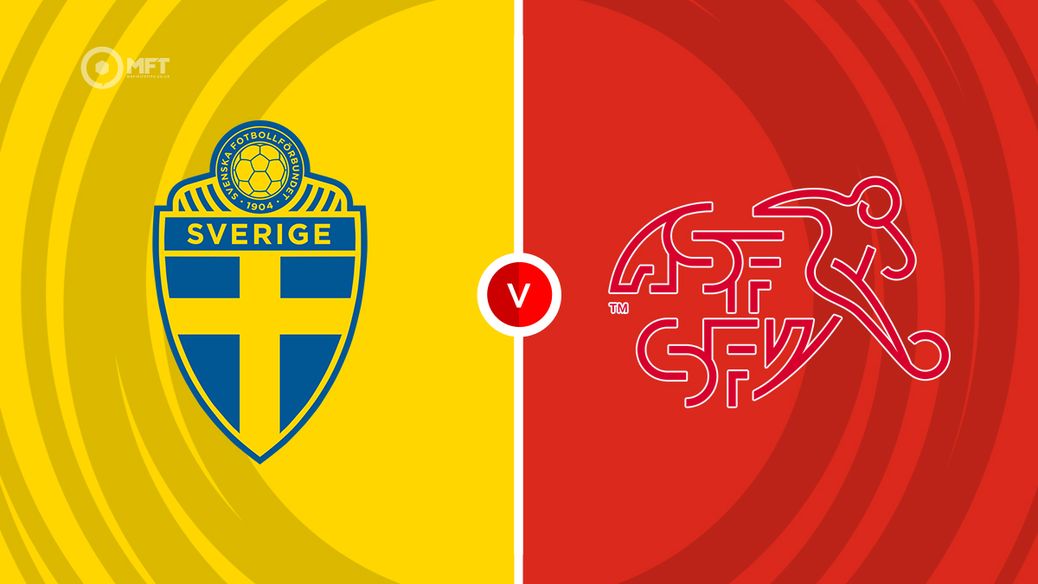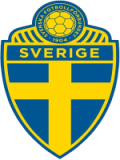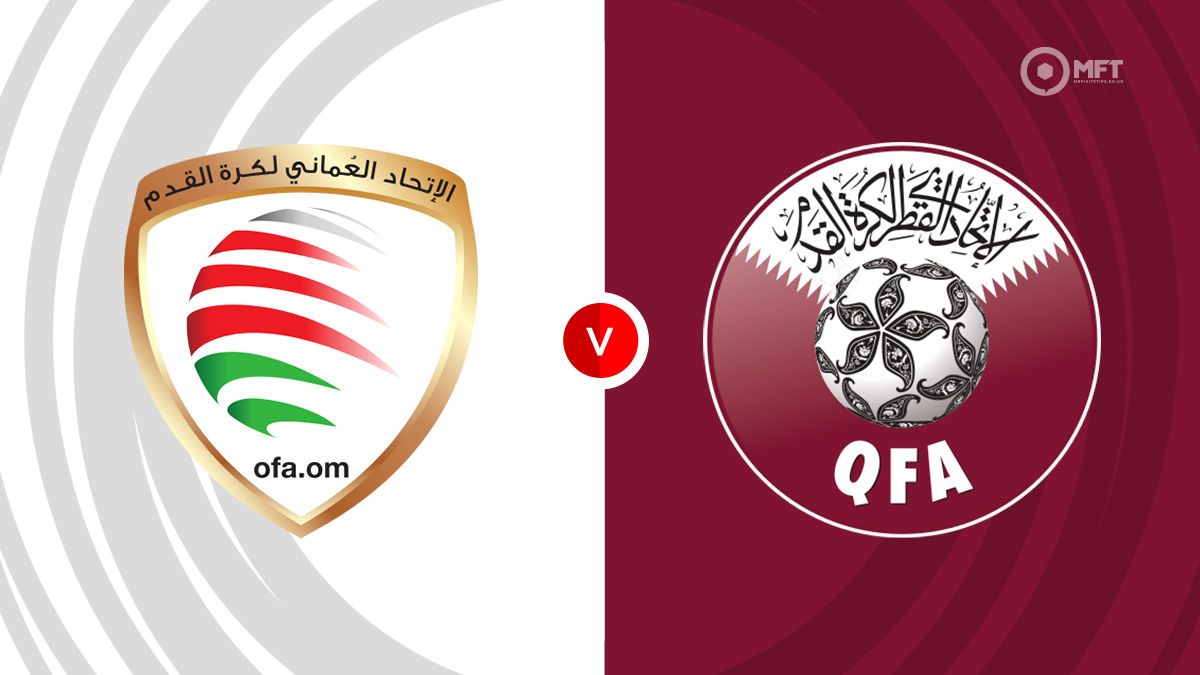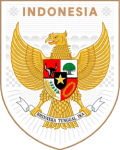
Sweden welcome Switzerland to the Stawberry Arena in Stockholm on Friday night in Group G of UEFA’s 2026 World Cup Qualifiers, a fixture that already feels pivotal for Jon Dahl Tomasson’s side.
Sweden have collected only one point from their opening two matches after drawing 2-2 in Slovenia and losing 2-0 in Kosovo, leaving them third in the group.
The performances were not disastrous, but the lack of end product has been costly. Sweden averaged over 60% possession and 1.4 xG across both games but conceded almost 3.0 xGA combined, exposing defensive flaws when pressed in transition.
Tomasson has encouraged a more front-footed style since taking charge, but that shift has yet to deliver results. Sweden’s xPTS total of 1.35 reflects how fine the margins have been, yet their shot volume has dropped to under nine per match in qualifying so far.
With not fully fit Alexander Isak and Dejan Kulusevski missing through injury, the responsibility falls on Anthony Elanga and Yasin Ayari to provide a spark.
Switzerland travel in far better shape. Murat Yakin’s side sit top with two wins from two, seven goals scored and none conceded.
Their xPTS total of 5.8 is the highest in the group, and their blend of control and structure has stood out. Granit Xhaka continues to dictate play in midfield, while Breel Embolo’s return has added a reliable cutting edge.
The Swiss are unbeaten in five matches and will view this as their toughest test yet, but confidence and cohesion remain high as they aim to take a major step toward qualification.
How the bookies view it: Hosts narrow favourites
The market makes Sweden narrow favourites at 29/20, which implies a 40.8% chance of victory. Switzerland are 2/1, translating to 33.3%, while the draw at 12/5 suggests around a 29.4% likelihood.
The odds show how tight the game is expected to be, with little between the two sides based on current form and data.
Goals are priced as slightly more likely than not, with over 2.5 goals at 10/11 (52.4%) and both teams to score at 8/11 (57.9%). Bookmakers clearly expect an open contest, but still see Sweden’s home advantage giving them a slight statistical edge.
Head to Head: Sweden hold the upper hand
Sweden and Switzerland have met only once in recent years, a 1-0 win for Sweden at the 2018 World Cup in Saint Petersburg. It was a tight contest decided by Emil Forsberg’s deflected strike midway through the second half.
The underlying numbers reflected the balance of play, with Sweden edging the xG 1.34 to 0.88 and both sides managing just two shots on target each.
Switzerland dominated possession for long spells but lacked penetration in the final third. That meeting highlighted Sweden’s ability to frustrate stronger sides, though both teams have evolved significantly in style and personnel since then.
Players to watch: Ndoye to hit the mark
Dan Ndoye has quietly become one of Murat Yakin’s most effective wide forwards. Across his last four competitive starts (two Nations League, two World Cup qualifiers), he has delivered a strong mix of consistency and directness that supports a simple but valuable market: Over 0.5 shots on target.
In those matches, Ndoye has produced four shots with three on target, hitting the target in three of his last four appearances. In the current qualifying campaign, he has averaged 1.0 shot on target per 90, registering one against Kosovo and another versus Slovenia, along with a goal and two assists. That is a solid return in a side that averages 17.5 shots per game and shares chances widely across its front three.
His Nations League numbers underline the same pattern and even in tighter games against stronger opposition (Serbia and Denmark), he still found shooting positions and completed five ball recoveries high up the pitch, showing he consistently gets into advanced areas.
Sweden’s wing-backs tend to push high in Jon Dahl Tomasson’s 3-5-2, which leaves space behind for players like Ndoye to exploit on transition. With Embolo drawing central attention, Ndoye should get shooting opportunities cutting inside from the right.
At 6/5 for Over 0.5 shots on target, the data and role profile make it a well-grounded play. He has hit the target in three of his last four starts, and the tactical setup here gives him every chance to repeat that.
Predicted line-ups
Sweden (3-5-2): Olsen; Ekdal, Hien, Gudmundsson; Svensson, Saletros, Larsson, Ayari, Elanga; Isak, Gyokeres
Switzerland (4-3-3): Kobel; Widmer, Akanji, Elvedi, Rodriguez; Xhaka, Freuler, Rieder; Ndoye, Embolo, Vargas
Anything else catch the eye?
Switzerland +0.25 Asian Handicap looks the best value for this fixture. It covers both a Swiss win and a draw, and the data strongly supports that angle.
Switzerland have been excellent in qualifying, generating 17.5 shots per match and 6.5 shots on target per game, while allowing just five shots on target in total.
Their non-penalty xG sits at 4.1 versus only 0.9 against, giving them the group’s best xG difference. Murat Yakin’s side have also created six big chances and conceded one, combining efficiency with control.
Sweden’s numbers are far less convincing. They have taken only one point from two matches with a negative xG balance and just two big chances created.
Despite averaging over 60% possession, they have managed fewer than four shots on target per game and look short of cutting edge without Alexander Isak and Dejan Kulusevski. Their xPTS total of 1.3 underlines that their dominance on the ball has not translated to results.
Switzerland’s away data reinforces the value. Against mid-tier UEFA nations ranked between 20th and 60th, they have lost just one of their last six competitive away matches, averaging 1.8 xPTS per game.
They manage matches well, restrict shots, and maintain attacking threat through Breel Embolo and Dam Ndoye on the break.
The Swiss know this is their toughest fixture in the group and would be content with a draw, maintaining their five-point cushion over Sweden. Given their structure, confidence, and current metrics, Switzerland +0.25AH represents a smart bet that rewards consistency while protecting against a narrow outcome.






























 GambleAware
GambleAware